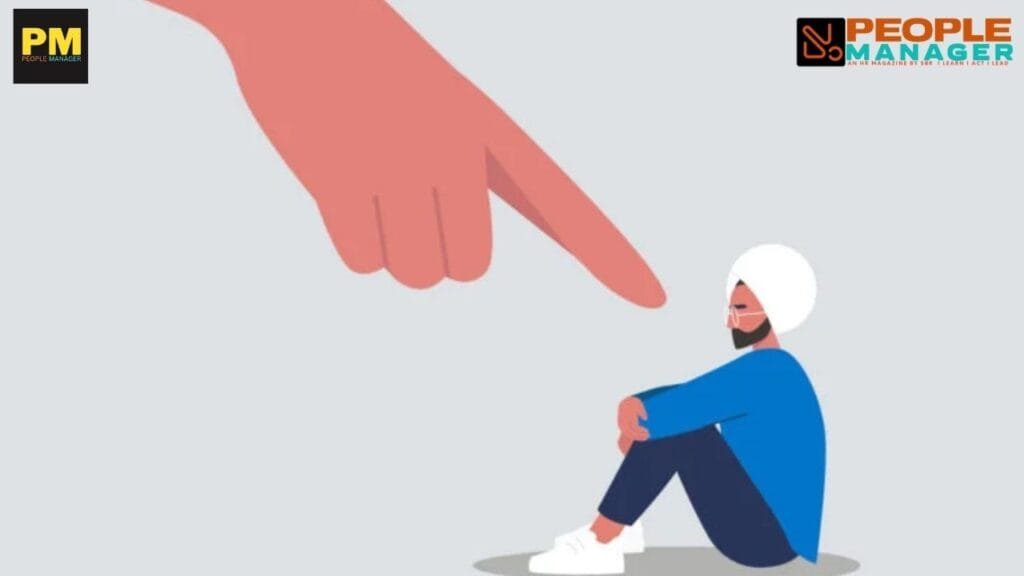Microaggressions at work impact 78% of women’s to self-shield and quit : Report
Women who experience microaggressions and shield themselves as a result are 4.2 times more likely to experience burnout.

Microaggressions at work impact 78% of women’s to self-shield and quit, A McKinsey research
Microaggression is a workplace folly that is raising insecurities in women around the world.
A frightening 78 percent of women who confront microaggressions at work utilize it as a kind of self-defense. That is, they adapt or adjust their appearance or behavior to protect themselves. That is troubling at a time when the world is waking up to the fact that women are finally finding their place in boardrooms. If women feel the need to modify who they are in order to feel included, then they have not been truly empowered, have they
According to a recent McKinsey research, “Women in the Workplace 2023,” one percent of all women believe that others get credit for their ideas at work. This is concerning because only 14% of all men polled agree.
Many women prefer not to share their thoughts in order to avoid seeming to be hostile team members. Needless to say, suppressing their actual sentiments and ideas stresses them out.
Women who face microaggressions and resort to self-shielding to protect themselves are three times more likely to consider quitting their professions. They’re also four times more likely to be exhausted. Organizations and employers that ignore workplace microaggressions are increasingly allowing their female employees to give their all.
What is ‘microaggressions”?
Microaggressions are embarrassing or humiliating comments or biased actions directed at members of minority communities based on their race, gender, or other characteristics. Such remarks are made intentionally or unintentionally to hurt the feelings of marginalized communities.
Microaggression can be demonstrated by praising a Japanese employee in a US firm for her flawless English, simply because she was not born in the US. This is a subtle form of discrimination that has a significant impact on the well-being of those targeted.
To protect themselves from such comments, the targeted individuals attempt to alter their conduct, behavior, or appearance. They try to keep their true opinions or feelings to themselves, refrain from expressing their thoughts, and even try to change their appearance so that they are less noticeable.
According to the report, 32% of women with disabilities believe others get credit for their ideas, while 26% of LGBTQ+ women believe others get credit for their ideas. Approximately 21% of all women say others at work take credit for their ideas. About 21% of white women, 17% of Asian women, 15% of Latinas, and 22% of Black women share this sentiment. When it comes to men, only 14% believe that credit for their ideas is given to others. The statistics speak for themselves.
Around 24% of white women believe their judgment is being questioned, while 16% of Asian women, 17% of Latinas, and 27% of Black women agree. Approximately 39% of women with disabilities, 33% of LGBTQ+ women, and 23% of all women in general have their judgment called into question. However, only 14% of men have ever had their judgment called into question.
Approximately 9% of white women have been mistaken for someone more junior at work. Approximately 8% of Asian women, 6% of Latinas, and 9% of Black women hold the same view. Around 14% of women with disabilities, as well as 2% of LGBTQ+ women and 9% of all women, admit to being mistaken for a much lower-level employee. However, only 5% of all men have had this experience.
While only 10% of men believe they are interrupted or spoken over more than others, a whopping 22% of women have been interrupted while speaking. In addition, 22% of white women, 19% of Asian women, 19% of Latinas, and 24% of Black women have been interrupted or spoken over more than others. Women have had it tough at work when it comes to being demeaning and bothersome.
While 5% of all women, 3% of Asian women, 5% of Latinas, and 6% of Black women have received comments about their appearance at work, only 2% of all men have had such an experience. 14 percent of LGBTQ+ people and 12 percent of women with disabilities believe others make comments about their appearance.
While 12 percent of all women have received comments about their emotional state, only 6 percent of all men have. Twelve percent of White women and seven percent of Asian women have had their emotional state commented on.
While only 10% of all men admit to being criticized for their demeanor, 14% of all women admit to being criticized. In fact, 15% of White women, 9% of Asian women, and 18% of Black women say they have been chastised for their demeanor.
When it comes to accents, only 3% of men feel judged, whereas 4% of women feel judged. Accents cause two percent of White women, eight percent of Black women, and seven percent of Asian women to feel judged.
While 7% of all women believe others make assumptions about their culture, only 5% of all men do. 2% of White women, 17% of Asian women, 16% of Latinas, and 13% of Black women admit that others make assumptions about their culture.
How is such microaggression harmful?
Women, particularly Asian women, are more likely to be misidentified as coworkers of the same race or ethnicity. Such an experience is not uncommon among Black women. That means their contributions may go unnoticed at work. This also demonstrates a lack of regard for them and their race. As a result, 8% of women feel the need to change their appearance and put on more professional attire and appearance. Only 4% of all men have this desire. Women are more likely to be targeted.
Nine percent of White women, 7% of Asian women, 7% of Latinas, and 9% of Black women admit to feeling pressured to change their appearance and put in more effort to appear more professional.
Similarly, compared to 32% of women, only 23% of all men feel the need to temper their words in order to avoid being hated. To avoid being unlikable, 32% of White women, 28% of Asian women, 26% of Latinas, and 37% of Black women admit to tempering their words.
It is concerning that 22% of all men avoid speaking up or sharing their opinion, compared to 31% of all women. In comparison to 57 percent of White women and 51 percent of Asian women, 44 percent of Black women are uncomfortable disagreeing with their colleagues.
When women attempt to self-shield in order to protect themselves from microaggressions at work, they are 42 times more likely to experience burnout, 3.3 times more likely to consider quitting, 2.6 times less likely to recommend their company to others, and 3.8 times less likely to believe they have equal opportunity for advancement.
Value our content… contribute towards our growth. Even a small contribution per month would be of great help to us. Since our establishment, we have been serving the industry through daily news and updates.
Our content is free for all, and we plan to keep it that way
Support the People Manager. Pay Here (All it takes is a minute)
- Pernod Ricard India introduces Cheers VRorld, an industry-first VR-powered onboarding experience in the Alco-Bev sector - February 11, 2026
- Jio-bp Appoints Sareeta Bhatikar as Chief Human Resources Officer to Steer Next Phase of Growth - February 11, 2026
- India Keeps Hiring as Global Markets Slow: Michael Page India Salary Report-26 - February 6, 2026







